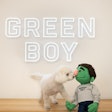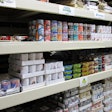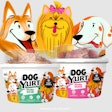
Online pet food market shares vary greatly, ranging as high as 48 percent in China down to conservative estimates of 6 to 7 percent in developed markets like the US and Western Europe. Yet they’re growing quickly everywhere, especially on platforms like Amazon, which sells about US$700 million a year in the US alone, according to One Click Retail. Its July 2017 report on second-quarter 2017 sales of consumables on Amazon showed that pet food was the fastest-growing category, from 25 to 70 percent, among pet supplies in the US, Canada, France and UK, and the top-selling pet category in three of them (www.petfoodindustry.com/articles/6604).
This category demonstrates the shopping portal’s nearly unprecedented clout; its recent acquisition of Whole Foods Market only expands its influence. For example, Whole Foods has two private-label pet food brands: Whole Paws (a full line of dog and cat foods) and Deck Hand (wet cat food). Both brands were available on Amazon as of the acquisition’s August 28 closing – maybe even before. That’s despite the website for American Tuna, which Whole Foods partnered with to sell Deck Hand, saying the products were available exclusively at Whole Foods stores.
This is not just a possible post-acquisition distribution change; it’s also an example of how murky online retailing can be. Take another: When PetSmart bought Chewy.com, several pet food brands that had pledged to support independent pet retailers announced they were pulling their products from Chewy because they no longer considered it independent. Yet the fact that their products were ever available on the platform – not to mention other e-commerce sites, including Amazon – makes you question how robust that support truly was. Independent pet stores, especially brick-and-mortar shops, are still losing those sales.
Like any market disruption, this will take time to sort out, including the impact on consumers. Pet food companies will be wise to carefully monitor the situation.

















